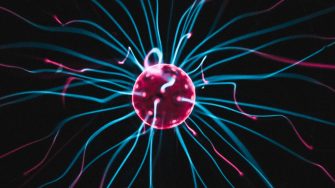
Indi is a second-year engineering student at UNSW Sydney and grew up in Tamworth in northern NSW. Indi was initially unsure about the type of engineering she wanted to do, so she signed up for a flexible first year engineering degree. At the end of her first year, she selected quantum engineering, which also happens to be the world’s first undergraduate degree of its kind! So, we asked her a few questions to find out what it’s all about.
What subjects did you study at school / what were you like at school?
I studied Extension 2 Maths, Physics, Chemistry and Advanced English. I’ve always had the most interest in STEM related subjects, however I also considered myself a fairly creative student too – I made animations in Visual Arts and studied French up until the end of year 11. I loved playing sport (hockey in particular) and music, as well as taking time to just chill with friends. I’d consider myself a balanced student – I was always outspoken in class and took the time to study, but I think it’s important to recognise that school doesn’t need to consume you.
For someone with only year 10 knowledge what is quantum engineering?
It’s first important to explain what quantum physics is: put very simply, it’s the physics of very, very small things. The smallest in fact – things that are at a sub-atomic level, so small they can’t be split up further. When things become this small, the nature of physics seems to flip on its head, and you get to work with different rules than that of classical physics.
Quantum engineering is then taking this physics and using it practically – largely for quantum computing. Quantum engineering teaches us the hardware of the computers of the future!
Why do we need quantum engineers / what do they do?
Quantum engineers are in the process of designing quantum computers – which rather than working with 1s and 0s (which normal computers do at the very base level to store information and do calculations), work with ‘qubits’. These have the ability to process way more data making quantum computers significantly faster than any of the super computers currently made (Google made one that solved a problem in 200 seconds that the fastest super computer would have taken 10,000 years to do!)
What is your favourite part of quantum engineering?
The great thing about quantum physics is we don’t have all the answers yet – to me it almost felt like magic because I thought the concepts were so wild and it was exciting knowing there’s plenty left for us to learn. I also love knowing that I get to study something that is truly at the forefront of technology.
For any girls thinking they might not be good enough to do quantum engineering what advice do you have?
My initial reaction is just to shout OF COURSE YOU ARE! Now I’m not saying it’s a breeze – there are plenty of times I come across concepts and skills that take some time to comprehend. However, because I find it interesting, I’m happy to work at it until I understand them. Sometimes you’ve got to be your own cheerleader – take a big breath and go and do the thing that interests you. You’re also not alone – there are lecturers, tutors and your peers to help you out along the way, it really is as simple as asking.
